Lucy Ma is a biomedical engineering graduate student whose research lies at the intersection of synthetic biology and regenerative medicine. Under the co-supervision of Dr. Michael Garton and Dr. Penney Gilbert, Lucy is working on engineering human-induced pluripotent stem cell (iPSC) derived skeletal muscle tissues to create a functional cure for chronic genetic diseases like hemophilia. Her research aims to develop a sustainable therapeutic method that eliminates the need for lifelong needle injections.
Beyond her lab work, Lucy is deeply involved in dragon boat racing, where she serves as the captain of the Gold boat at the SKULE Iron Dragons. The sport not only helps her reconnect with her Asian heritage but also instills in her a sense of teamwork and perseverance that parallels her scientific endeavors. Lucy draws inspiration from the discipline and synchronicity required in dragon boat racing, applying these principles to her research.
Read more about her profile below.
What’s your research topic in graduate school?
Being at the convergence of synthetic biology and regenerative medicine, I am developing a functional cure for chronic and debilitating genetic diseases. Our approach is to engineer human induced pluripotent stem cell (iPSC) derived skeletal muscle tissues, to secrete therapeutic proteins into the bloodstream for the treatment of diseases that require a lifetime of needle injections. For instance, patients with hemophilia would experience prolonged bleeding episodes due to the deficiency of a functional protein, like a clotting factor. By engineering iPSCs to express the DNA sequence of the deficient factor and differentiating the cells into a skeletal muscle tissue that can be transplanted into the patient’s body, it can continuously deliver the missing factor into the bloodstream. It really is a privilege to have both Dr. Michael Garton and Dr. Penney Gilbert’s co-supervision on this ambitious project, where I get to dedicate my time to completely changing the way we think about delivering therapeutics.
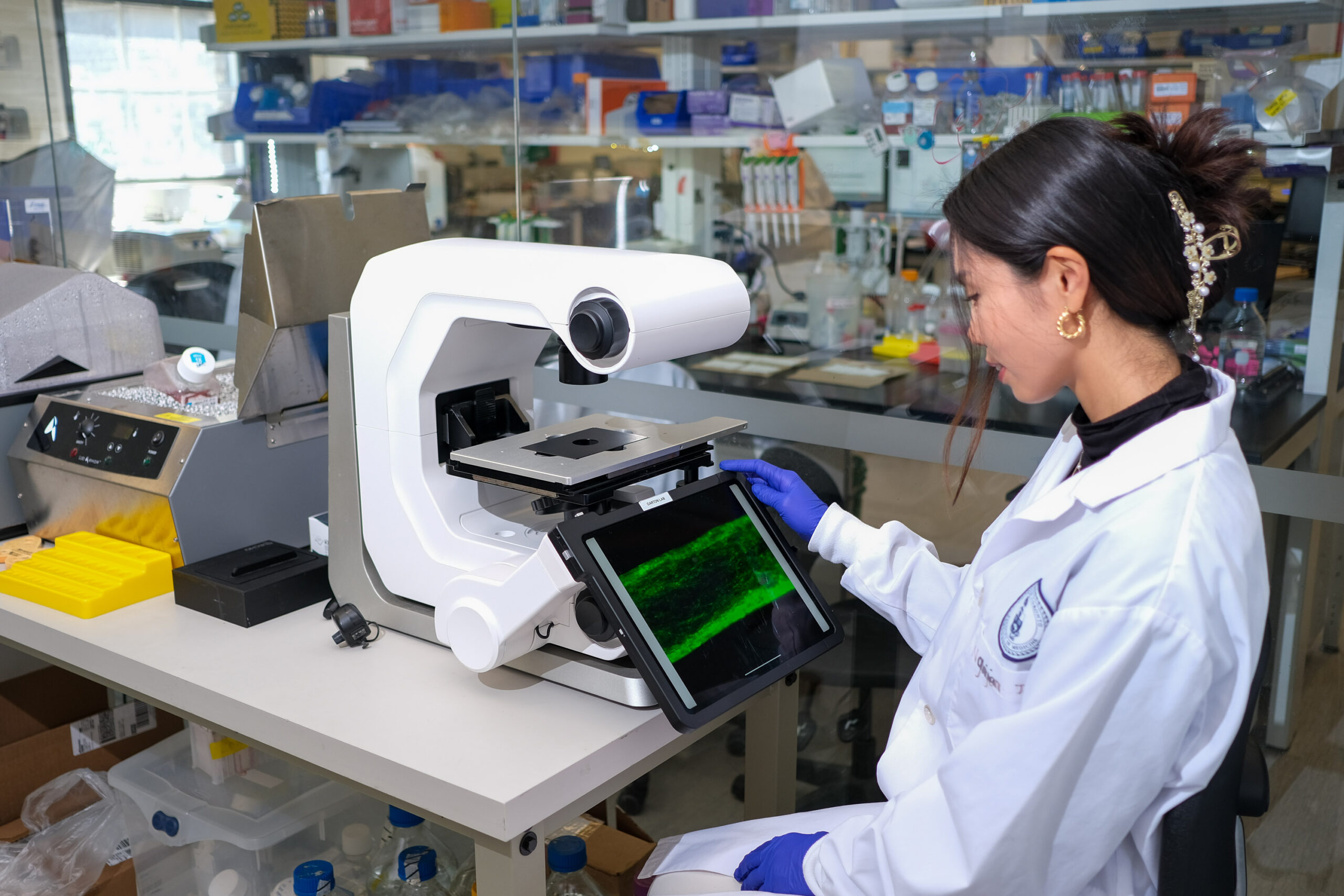
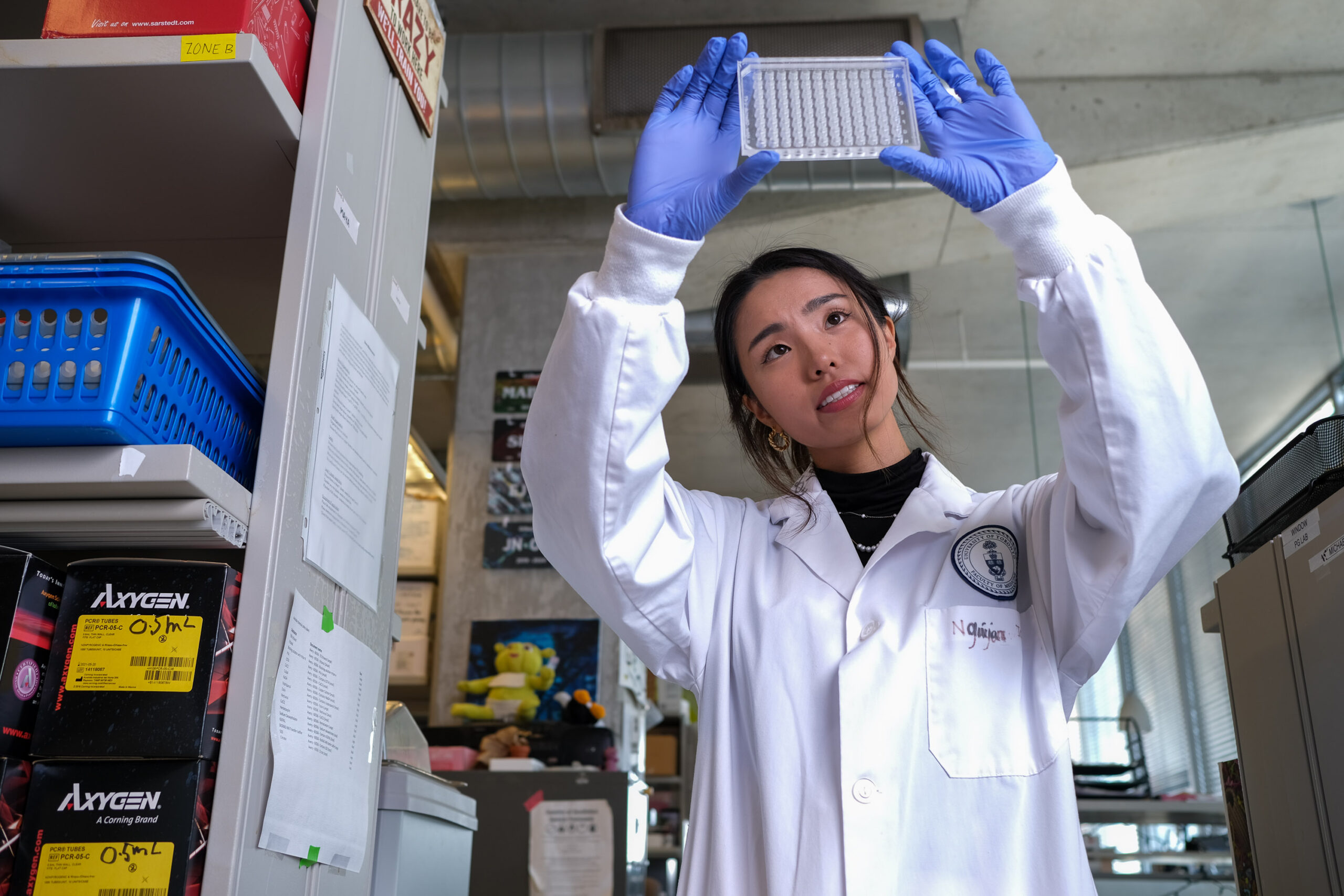
How does a typical day look for you as a graduate student?
I love to start my morning with a 5km run with friends or an hour session at the gym weight lifting. I get to the lab by 9-10am, and I would be running experiments, reading, writing, or having meetings depending on the day. After dinner, I dedicate an hour to taking more detailed notes on my protocols and observations. Mondays and Wednesdays I would have dragon boat practice from 6pm-9pm, where otherwise I would try to see friends and family. Some experiments may require me to come back to the lab at odd hours in the evening. The non-negotiable aspect in my life is definitely sleep! Burnout culture is not “cool” and sleeping at a reasonable hour is the key to being a functional human.
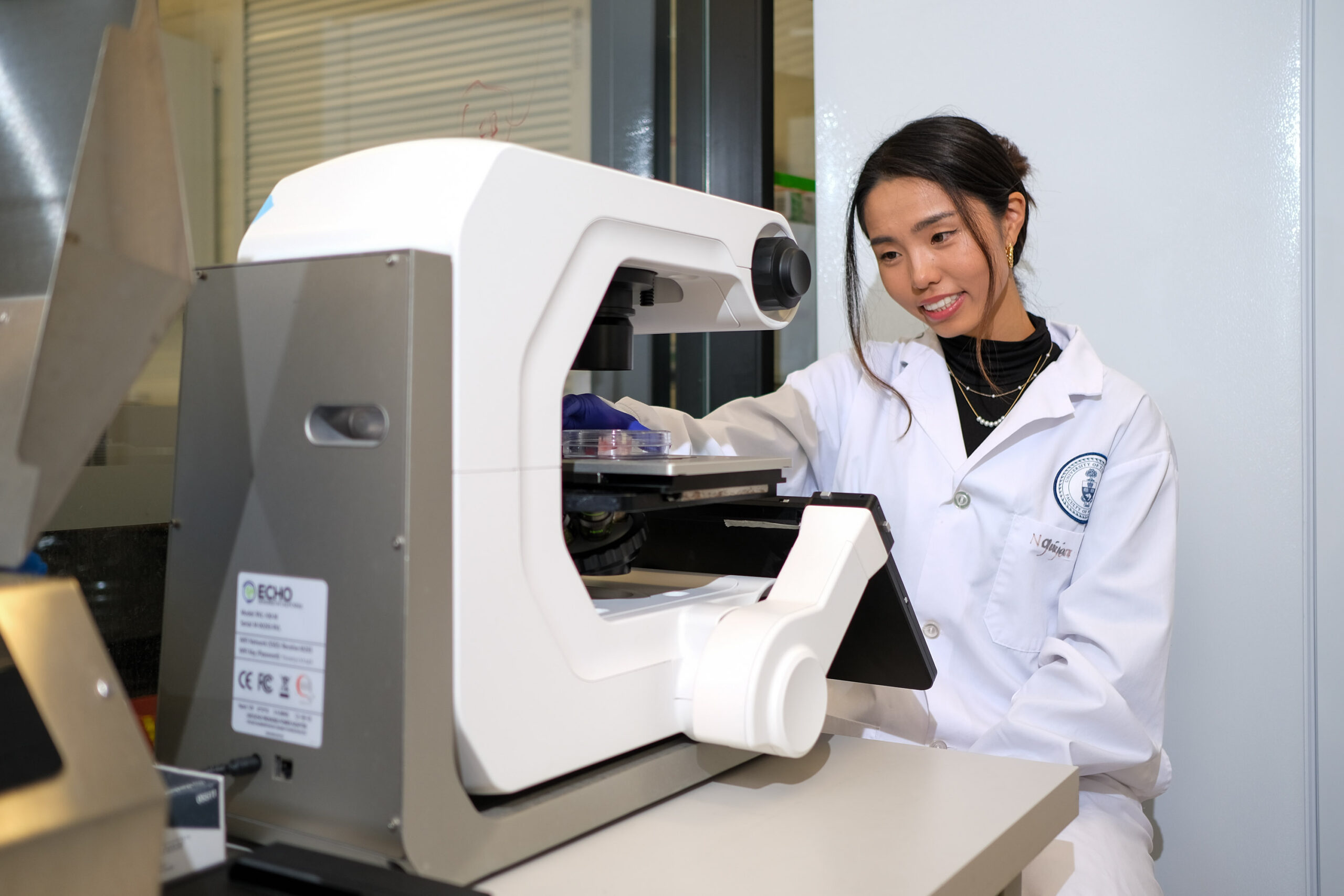
How did you first get involved in dragon boat racing?
My friends scouted us to join their weekly team workouts, and I fell in love with the community right away. I was also looking for a way to reconnect with my Asian heritage, and the Dragon Boat Festival is a traditional Chinese holiday, which dates back over two thousand years. The festival is closely linked to the legend of Qu Yuan, a beloved poet who once drowned himself. The origins of dragon boat racing are said to stem from villagers who hurried out in boats to try to save Qu Yuan, beating the water with their paddles to protect his body from being consumed by fish.
Our coach once said to the rookies that we are “greater than the sum of our parts”, where the syncopation of individual members is more important than an individual’s strength. The euphoria that you get from crossing the finishing line together as a team is such an addictive emotion that it makes you forget all the pain.
What’s your role on the team?
As the captain of the Gold boat, my main responsibility is to facilitate communication within the boat by leading debriefs and motivating the team spirit. I was also a “pacer” for our boat, setting a sustainable stroke rate for the race depending on the distance. It was such a rewarding experience building an identity of our own that is different from the veteran (Blue) boat. At our recent Canada-American Championship, we were breaking our own records and setting new standards for the next season to come.
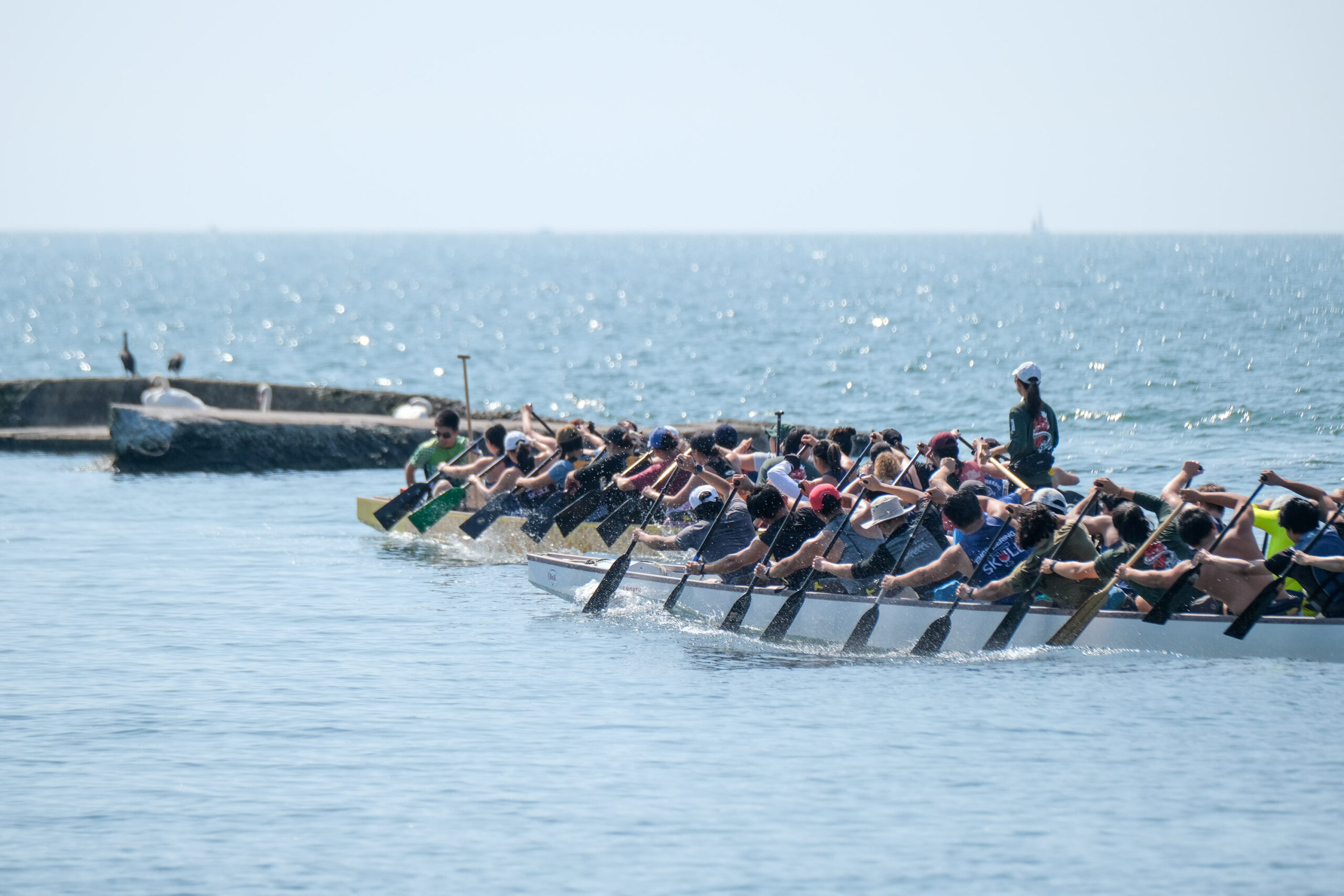
What are some common terminologies used in the sport?
Paddlers
We are paddlers not rowers! I was flamed a few times for making that mistake
Catch
The phase of the stroke where the paddle enters the water. A clean, powerful catch is essential for effective propulsion.
Take a Seat
My personal favorite, usually screamed out during a long-distance race like a 2km when we are passing another team’s boat.
Huli
A term used when a dragon boat capsizes. It’s a rare but important scenario for teams to be prepared for where a recovery maneuver is needed.
Pacer, Engine, Rocket
Terms to divide up sections of the boat, where Pacers are usually the first 3 rows, and Rockets are the last 3 rows with the Engines being the middle rows.
Power 10
A call to lengthen and deepen their reach, building more power while staying in sync.
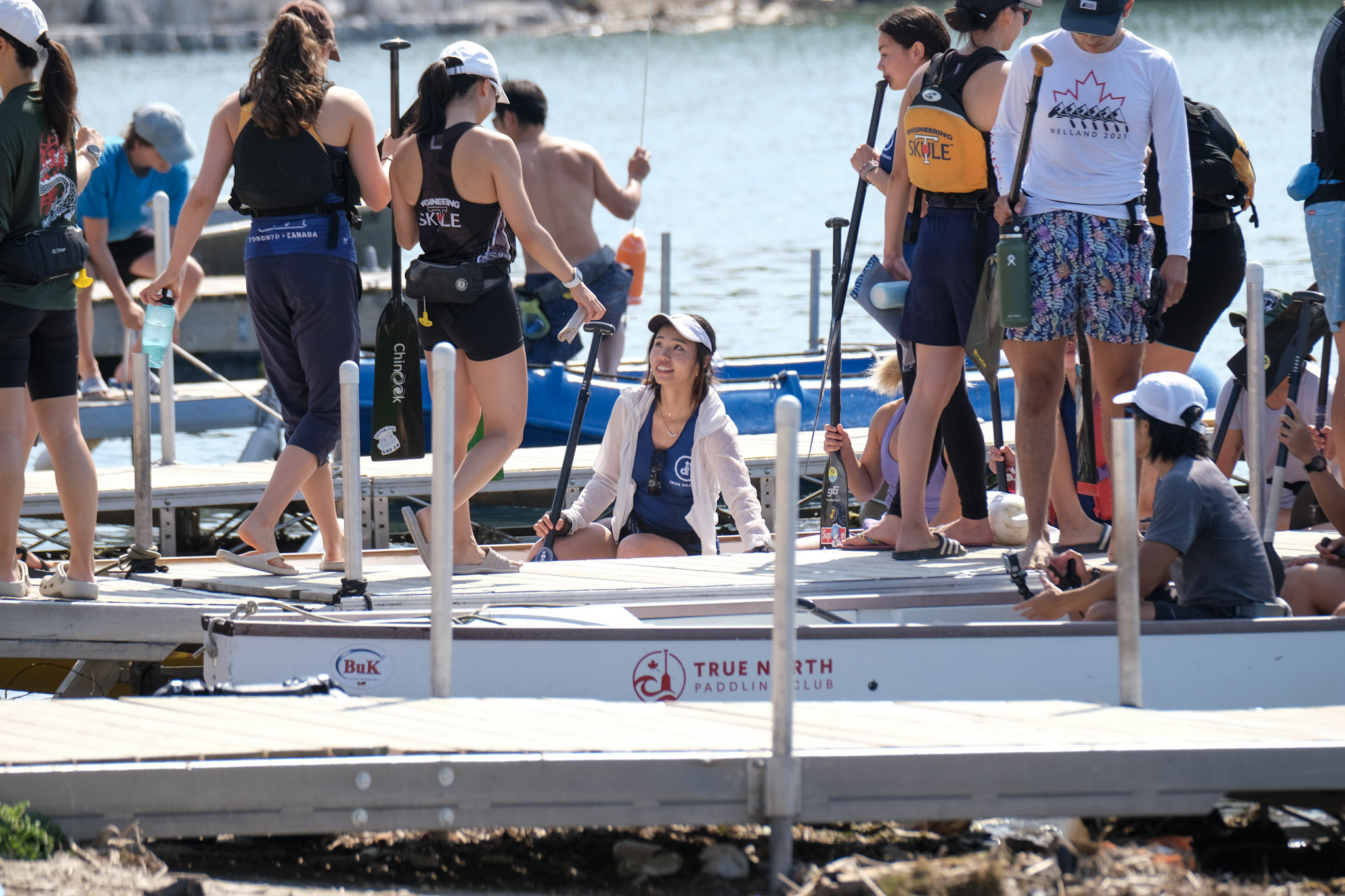
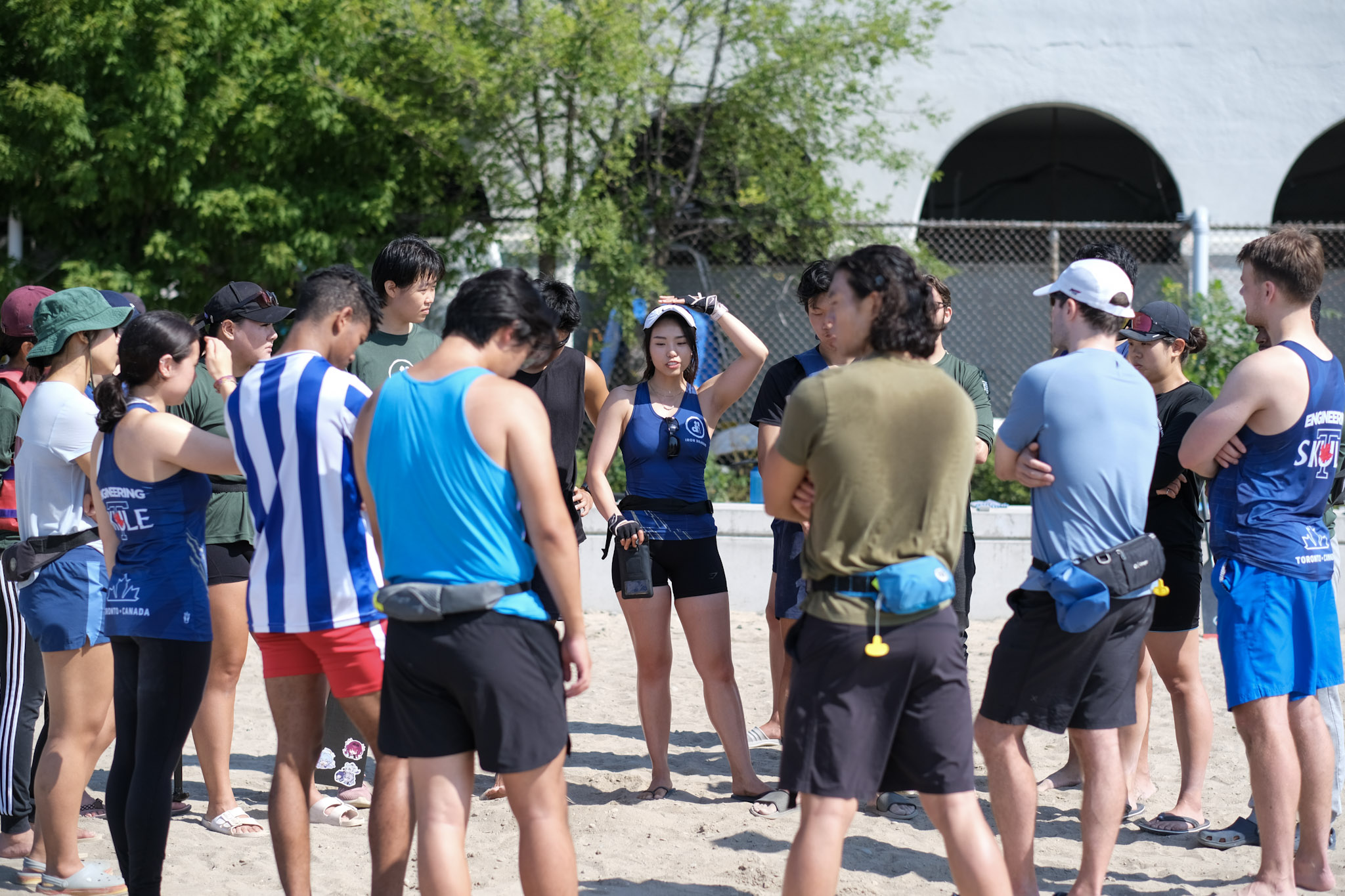
Have you ever participated in any international or national dragon boat competitions? If so, what was that experience like?
We have both national and international competitions (regattas) including the Can-American Championships in Welland (where the women’s 24U team placed 3rd place) and the Toronto International Dragon Boat Race Festival at the Toronto Islands. It’s really amazing to meet seasoned athletes from across borders joining us to compete, and it made me proud of our multicultural city.
What goals do you have for yourself and your team in the upcoming season?
Growing as a team demands not only confidence but also trust—both in ourselves and in one another. It requires self-discipline to push beyond our limits, even when no one is watching. With the new identity we’ve forged together on the Gold boat, I hope we enter the upcoming season no longer seeing ourselves as rookies, but as seasoned competitors, with forged minds and bodies ready to set new records.
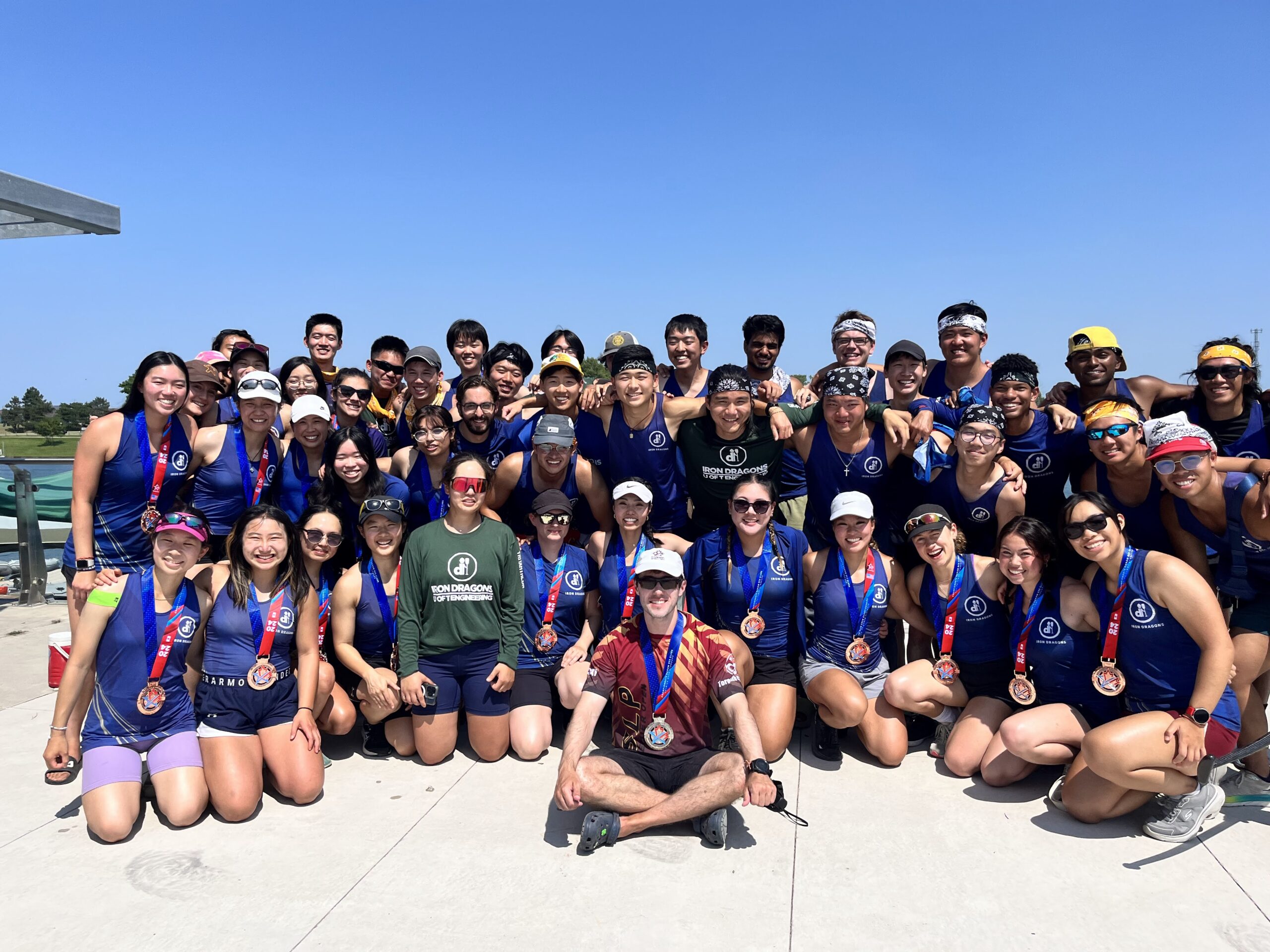
What are some parallels between dragon boat
and research?
Muscle Biology
Since I am learning to master the technique of growing 3D skeletal muscle tissues in vitro, it’s a complementary perspective to experience muscle regeneration in vivo at dragon boat practices. There are actually muscle stem cells that lie across our muscles, and these cells typically exist in a quiescent state but may enter the cell cycle following injury in order to regenerate the skeletal muscle.
Recovery Time
muscle-building enthusiasts know that rest time is just as important as the time spent lifting weights in the gym. In research, time spent reflecting and thinking critically is just as important as conducting experiments, which is when learning takes place.
Trust in Yourself
imposter syndrome can be a challenge in both being a rookie paddler amongst seasoned athletes and being a direct-entry PhD amongst mature scientists. It takes a careful balance of confidence and conscientiousness to set realistic goals while challenging yourself to try something new.
How does teamwork play a role in research versus dragon boat?
The level of teamwork required for a competitive dragon boat goes beyond the superficial layer of synchronous movements. There is a period right before the race begins where we sit in silence, eyes in our boat, and that’s where the mind-body connection takes place, where the entire team’s energy is connected with each other. Oftentimes in research, students can end up working in silo. One of my ambitions for the BME community is to build an ecosystem where we normalize the process of sharing, not just successful results but also raw data and life experiences outside the lab, where we can discover new science and the graduate journey together. That is one of the core motivations of the initiative I started with Dr. Gilbert and fellow grad students called the BME Graduate Mentorship Program (BME GMP). P.S. we will be recruiting in September so stay tuned!
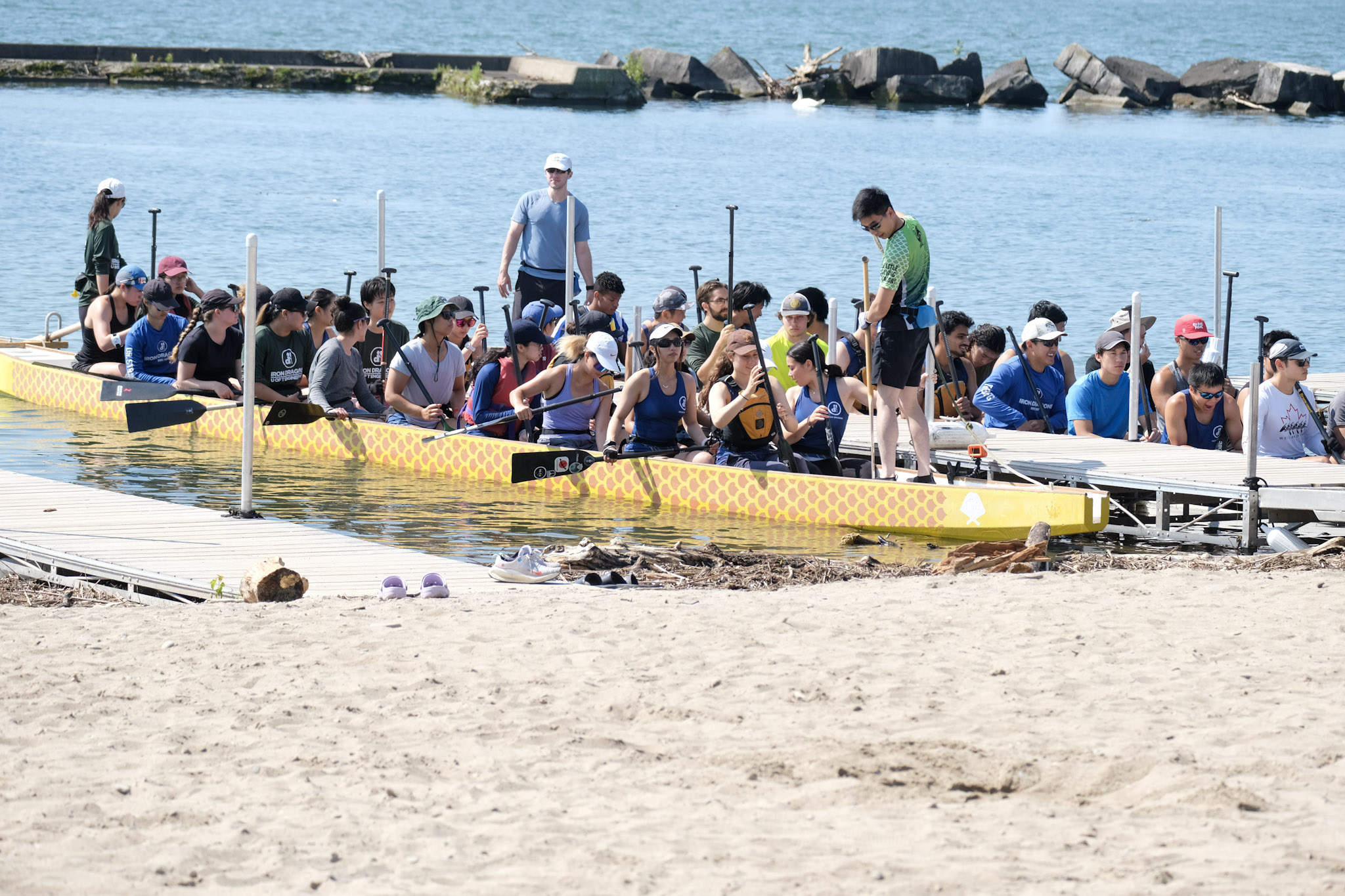
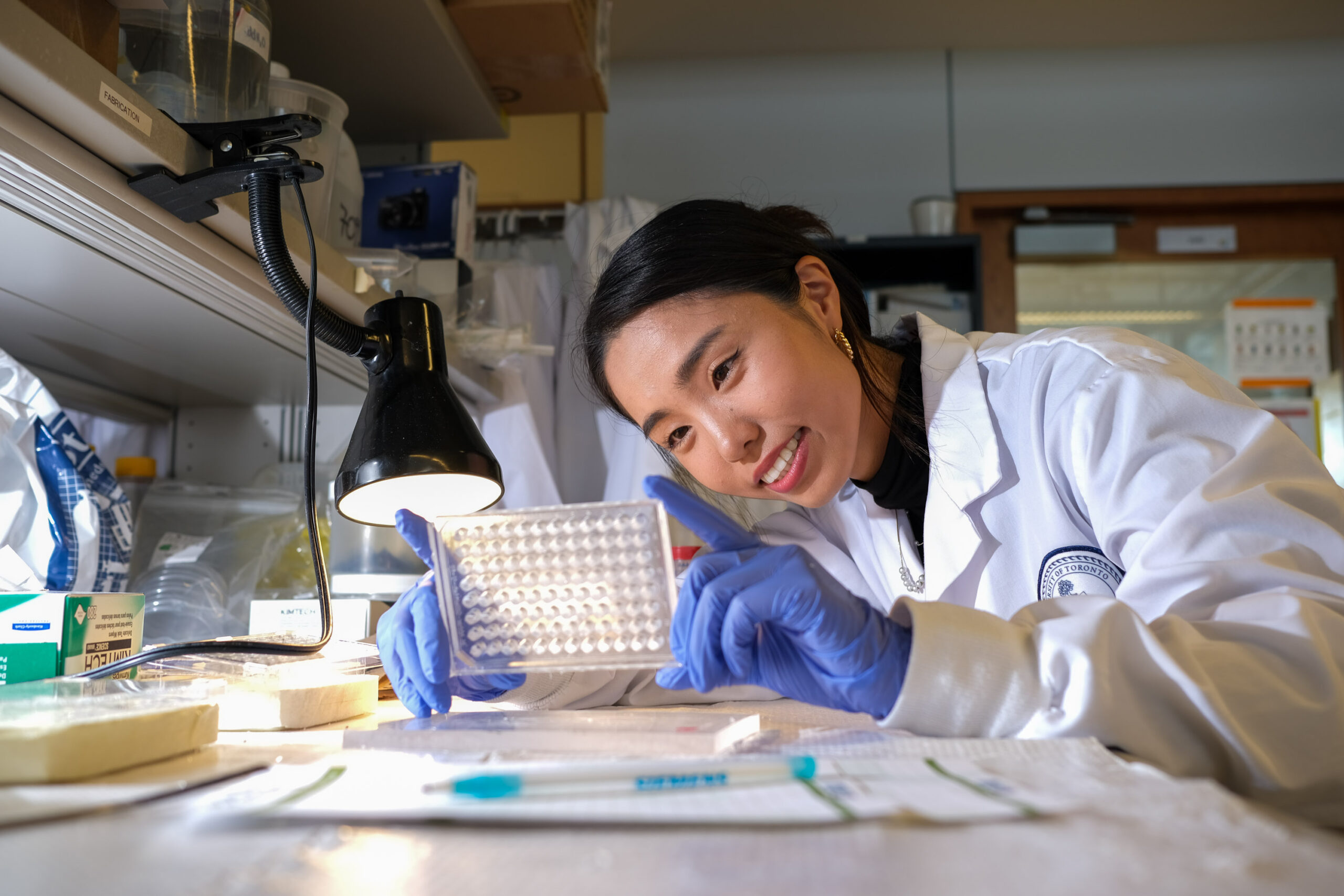
Does having a positive performance in dragon boat also improve your research capabilities?
Absolutely! The incremental individual achievements and team victories bring a beam of optimism to hard times. One of the differentiating factors of competitive athletes is the grit that it takes to breakthrough pain, such as during the middle of a long-distance race. Once your mind decides to persevere, the fatigue disappears and somehow you can find even more strength than you knew was possible. I believe that is the mentality critical for success in any pursuit, particularly one that is like a marathon instead of a sprint.
Balancing time must be challenging. How do you do it?
Google calendar is my best friend, and it is important to be realistic about how much time every activity takes. I did have to make sacrifices to other extracurriculars in order to make time for dragon boat. I also recommend this app called “Structured”, where you can sync with your calendar to plan out your day. If I am ever overwhelmed with tasks, I break them down into 4 quadrants depending on urgency and importance.


